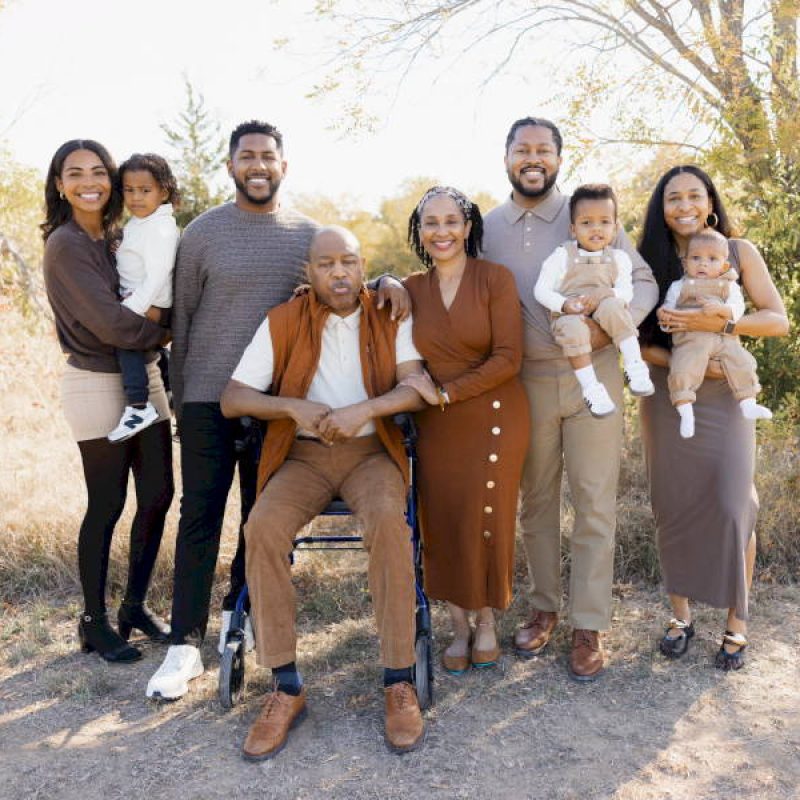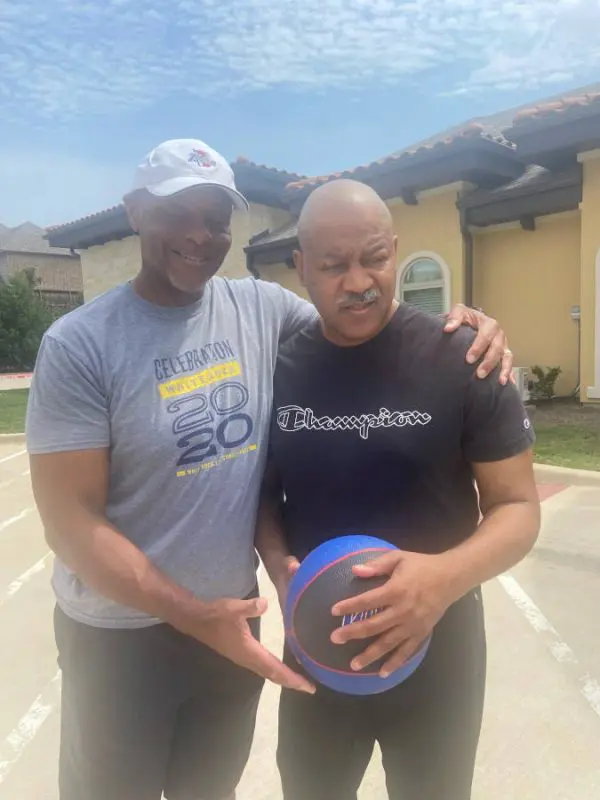Marcus & Deborah
Young-Onset Alzheimer's (YOAD) steals the future from younger patients like Marcus, preventing them from achieving career milestones, retirement, and precious time with family and friends.
Deborah Anderson
ANNUAL GALA 2025


The Anderson Team
We Walk This Together
Their Story
Marcus and I met in our sophomore year of high school. He attended Topeka High School, and I went to Highland Park High School, both in Topeka, KS. Though we went our separate ways for college, when I learned of his injury, I immediately contacted his mother. Not long after, Marcus arrived at my childhood home, wearing his full halo, and we’ve been together ever since. Together, we raised two sons: Christopher (37) and Jon-Marc (29).
We were new empty nesters when Marcus received his diagnosis.
In 2016, Marcus’ employer underwent a massive layoff that resulted in part of the plant closing. During his job search, at 53, I became his “Agent,” helping with phone screens and interviews. As part of this role, I would ask him questions like, “Tell me about your 30-year career in Human Resources?” But I noticed something unusual—he was struggling to answer, which was unlike him. Marcus had always been quick-witted and never at a loss for words.
By April 2017, Marcus was referred to a neuropsychologist, who noted cognitive changes that would prevent him from returning to his career. Given that these changes seemed to appear suddenly, our general physician referred him to a neurologist for further testing.
A spinal tap revealed the presence of the Alzheimer’s Tau Protein in his spinal fluid. In April 2018, Marcus was formally diagnosed with Young-Onset Alzheimer’s (YOAD) at age 54. Genetic testing showed no familial gene markers, suggesting that his EOAD was likely caused by a traumatic brain injury earlier in his life. Marcus had suffered a broken neck playing college football in his senior year.
YOAD steals the future from younger patients like Marcus, preventing them from achieving career milestones, retirement, and precious time with family and friends. Unfortunately, because the illness appeared so suddenly, we found ourselves without life insurance or long-term care insurance, as patients are often no longer eligible for these once testing or a diagnosis occurs. In our case, we’ve never had a single conversation about the diagnosis aside from my encouraging him to see our primary doctor. It was up to me to guide him through our journey. We walk this together.
Throughout 2020, Marcus experienced a steady cognitive decline. For example, in January 2021, our family celebrated Marcus’ 58th birthday and took him bowling. Marcus was the first one up to bowl and bowled two strikes – nearly a perfect game. By April 2021, his cognition declined severely. Since we were both pre-retirement age and I had a full-time career, our sons and I realized he would require full-time care. It was time to downsize our home in southwestern Indiana. In June 2021, I decided to move to the Dallas area to access the memory care resources available throughout the metroplex. A few months later, Jon-Marc relocated from Minneapolis to Dallas as well. Dallas was an excellent choice since we had many childhood friends in the Metroplex and several of Marcus’ college teammates live in Dallas.
Marcus now resides in a memory care facility. He lost his ability to speak before moving, and he is no longer able to perform activities of daily living. However, his reflexes and physical strength—remarkable traits from his days as an athlete—remain. It’s incredibly difficult to grieve the man Marcus was, but I am grateful for the person he is today. I find joy in caring for him and advocating for him. While he cannot verbally express his love, he shows it through his eyes and his smile.
As Marcus’ wife and advocate, I want to encourage others who are on this same journey. I am deeply grateful to have met Carlene Clark McCaughey, the founder of the We Walk This Together Foundation and the Early-Onset/Young Alzheimer’s Female Spouses Caregiver Support Group.







